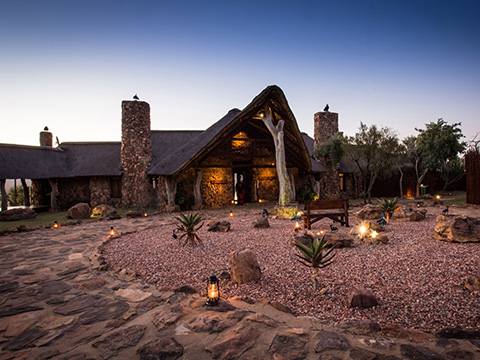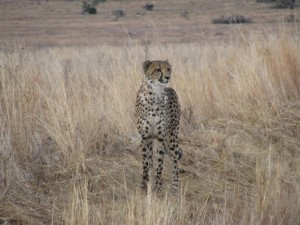“When the lion kills, the jackal profits.”
~ Author Unknown
We are going to dedicate this newsletter to an amazing animal which is sought after in the reserve but unfortunately not as popular outside the boundaries of the property on commercial farm lands… the black backed jackal (Canis mesomelas). The jackal has, for hundreds of years, been a consistent threat to livestock farmers, yet through all the practices put in place to try and eradicate them on farm lands, their numbers have only increased and they seem to be doing better nowadays than ever before.
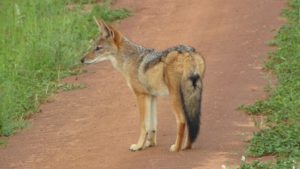 In Welgevonden Game Reserve, there is a very healthy population of jackal residing on the property. Jackals are mainly diurnal (active during the day), but often seen in the spot light on the evening drives. In winter periods, they are spotted easier during the days as they utilise the warmer day light hours to find their food sources before the temperatures drop as the evenings approach. In the southern part of the reserve where Pitse Lodge is situated, the territorial calls of the jackals are heard on a daily basis from the lodge. The sound to some, who don’t know it, may sound like a young child crying at first, but when the call is answered by a number of other individuals, it is a sound one will never mistake or forget.
In Welgevonden Game Reserve, there is a very healthy population of jackal residing on the property. Jackals are mainly diurnal (active during the day), but often seen in the spot light on the evening drives. In winter periods, they are spotted easier during the days as they utilise the warmer day light hours to find their food sources before the temperatures drop as the evenings approach. In the southern part of the reserve where Pitse Lodge is situated, the territorial calls of the jackals are heard on a daily basis from the lodge. The sound to some, who don’t know it, may sound like a young child crying at first, but when the call is answered by a number of other individuals, it is a sound one will never mistake or forget.
The preferred denning locations of the jackal are old termite mounds which have been kindly excavated for the jackal, by the aardvark in search of termites to feed on. Once a hole has been excavated, the jackal then take up residence in the termite mound and have a number of entry and exit points in the mound. The mother will normally have between four to six pups at a time.
Jackals are very territorial; they generally come back and utilise the same denning mound year after year. Once one gets to know the mounds in which the jackal breed in, it is always interesting to return to the same spot each year and see if the female has chosen the same denning spot again. Generally if one sits and waits quietly at the denning spots, you will be rewarded by the inquisitive nature of the young pups that cannot resist the temptation to exit the safety of the burrow to inspect the unusual noise of humans and vehicles above ground.
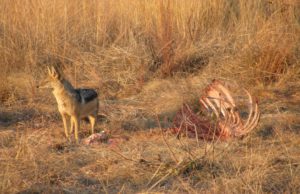 A question often asked by visitors is, how come jackal numbers control themselves in a system where their food sources are unlimited, such as a game reserve, yet out on farm lands, where they have to work very hard to survive and manage to find food sources, there numbers seem to have increased over the last few hundred years. The answer is simple: it all comes down to territories and allowing nature to function without being interfered with. In a game reserve such as Welgevonden, a territorial male jackal will not allow other jackal to intrude in his territory, unless it is his mate or his young, which they are parenting towards adulthood. By allowing this natural process to occur, one will never have a situation where there will be an overpopulation of jackal as the male holding the territory will not allow this. On the other side of the fence, where jackal are constantly under threat by farming interventions, the jackal never get a chance to establish territories and actively protect them. This in turn allows for a “free market” where many jackal constantly compete for the same area but never get the chance to establish who is territorial over that area and push out the weaker competitors. Through research it has also been proven that female jackal give birth to pups at a younger age in areas where there is heavier external pressures on their survival than in areas where they are protected such as game reserves.
A question often asked by visitors is, how come jackal numbers control themselves in a system where their food sources are unlimited, such as a game reserve, yet out on farm lands, where they have to work very hard to survive and manage to find food sources, there numbers seem to have increased over the last few hundred years. The answer is simple: it all comes down to territories and allowing nature to function without being interfered with. In a game reserve such as Welgevonden, a territorial male jackal will not allow other jackal to intrude in his territory, unless it is his mate or his young, which they are parenting towards adulthood. By allowing this natural process to occur, one will never have a situation where there will be an overpopulation of jackal as the male holding the territory will not allow this. On the other side of the fence, where jackal are constantly under threat by farming interventions, the jackal never get a chance to establish territories and actively protect them. This in turn allows for a “free market” where many jackal constantly compete for the same area but never get the chance to establish who is territorial over that area and push out the weaker competitors. Through research it has also been proven that female jackal give birth to pups at a younger age in areas where there is heavier external pressures on their survival than in areas where they are protected such as game reserves.
From the above paragraph, nature has shown that if we do not interfere in any way and allow nature to take its natural path, then in essence, there would be fewer jackals on a property at anyone given time.
Jackals are also a vital part of nature as they ensure that old carcases are not left lying around the fields, but rather fed on and in doing so, kill off any harmful bacteria or viruses through the aid of their digestive enzymes in their stomachs. This in turn stops the potential spread of any unwanted diseases in a natural environment.
While out on game drives we often look at the behaviour patterns of jackal in the fields to try and determine if they perhaps know of a predator nearby that we perhaps cannot see. There restless behaviour on a very hot day or a number of jackal present in one area at a time, are always good indicators of a kill or predator in the area. In the evenings, jackal are often spotted from the deck of the main lodge, due to the healthy population of springhaas (Pedetes capensis) we have feeding and denning in the fire break in front of the main lodge. The springhaas is a great food source for the jackal and they actively hunt the springhaas just after dark.
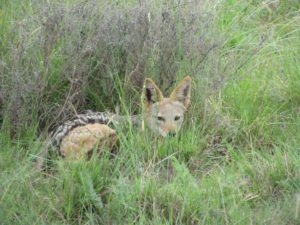 Please remember to share your past experiences with fellow travellers on www.tripadvisor.com and to “like” our Facebook page to get regular updates, photos and news on the lodge.
Please remember to share your past experiences with fellow travellers on www.tripadvisor.com and to “like” our Facebook page to get regular updates, photos and news on the lodge.
RECIPE OF THE MONTH
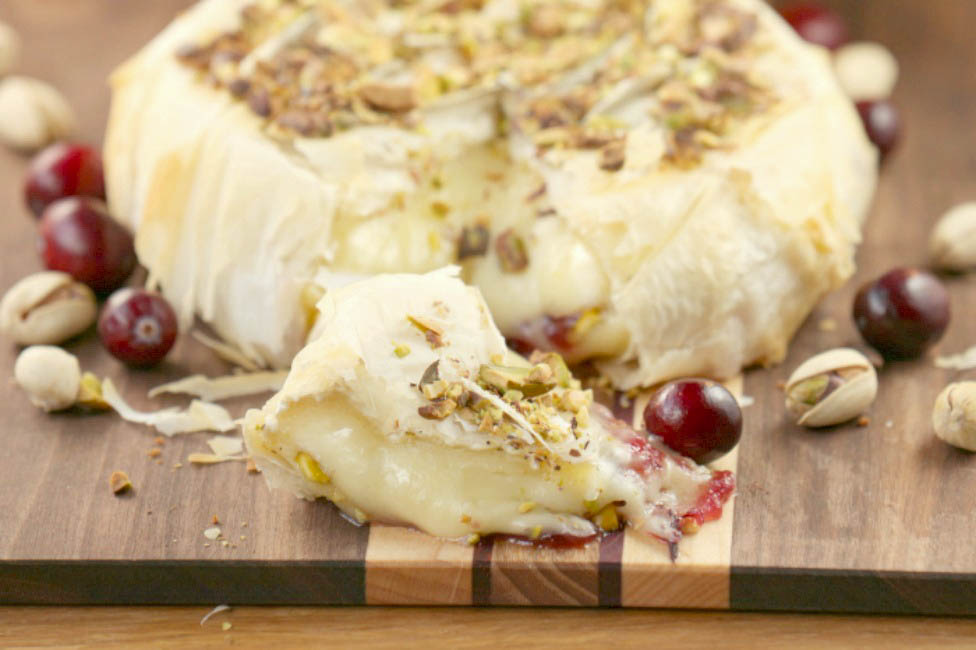
Ingredients
- 120g blue cheese – crumbled
- 120g cheddar cheese – grated
- 120g cranberry cheese – crumbled
- 120g of cranberry jelly
- 120g pistachio nuts – roughly chopped
- 3 tablespoons of strawberry jam
- Already made phyllo pastry
- Butter – melted
Method
- Spray a muffin pan with non-stick cooking spray
- Cut the pastry into large squares, big enough to fit into the muffin mould. Layer the pastry with 3 sheets or layers of phyllo and butter each sheet so they stick together.
- Mix all the ingredients together to make the mixture for the pastry filling
- Place the pastry into the muffin pan and fill with the mixture. Pinch the top of the pastry together to make a parcel. Do this with all the pastry and mixture.
- Once your pastry parcels are complete, place the tray of parcels into the freezer, until you are ready to use them. (This makes the mixture nice and firm, so when you deep fry the parcels, the mixture is firm and not running out of the pastry).
- When you are ready to make the parcels, deep fry them in hot oil until golden.
- Remove, drain on paper towel and place into the oven for 5 minutes on 180 degrees.
- Serve with a bit more cranberry jelly, garnish and enjoy!

